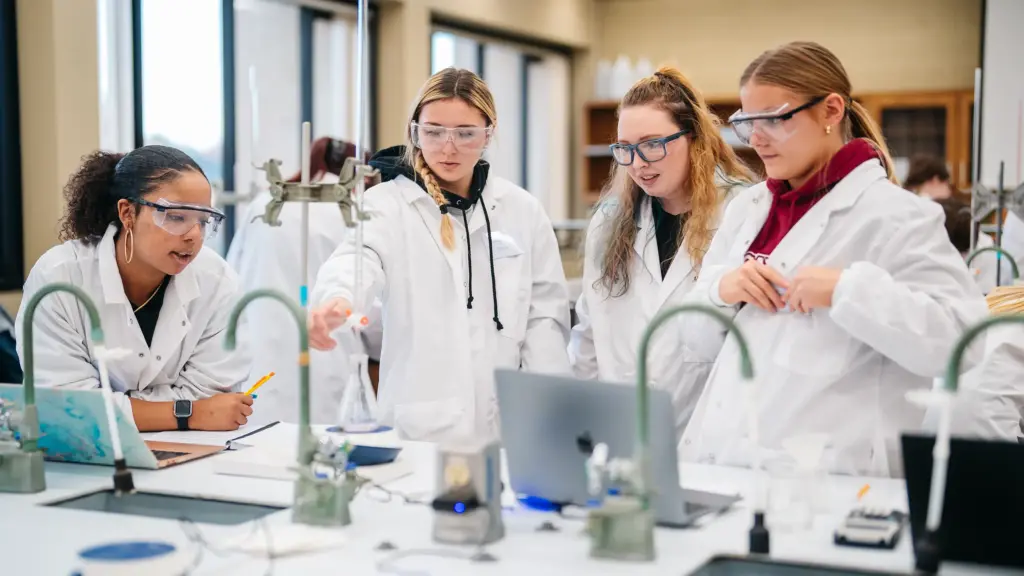Overview
- Degree Level
- Undergraduate
- Degrees Offered
- Bachelor of Science
- school/college
- College of Arts and Sciences

A Bachelor of Science Degree in Biochemistry is an interdisciplinary degree offered through the Departments of Biology, and Chemistry and Physics. The Biochemistry program includes a comprehensive curriculum of foundational knowledge of core concepts in biochemistry and promotes critical thinking and communication skills for those students seeking a career in the biomedical sciences. Through collaboration with a faculty mentor, all Biochemistry majors will engage in a Senior Capstone Thesis project that will synthesize their foundational academic and research experiences to address questions of interest to the scientific and medical communities. A Bachelor of Science Degree in Biochemistry prepares our graduates to be competitive for master’s and doctoral programs in biochemistry and related disciplines as well as the health professions.
Required Course
Biochemistry I focuses on structure/function relationships and interactions of biomolecules that govern biological processes in living organisms. This course is crosslisted with BI340 and CH303.
Elective Course
Explore immunotherapy and targeted-drug design while learning about the causes of cancer at the molecular level and cutting-edge therapies to treat the disease.
Elective Course
Explore cell structure and function at the molecular level including membranes, intracellular trafficking, information transfer, and storage. You will gain experience in molecular and biochemical techniques in the associated laboratory course.
A study of the correlation of acid-base theory, reaction mechanisms, molecular structure, chemical energetics, stereochemistry, and spectroscopy, applied to organic functional groups, specifically alkanes, alkenes, alkynes, alky halides, alcohols, and ethers. Survey of the properties of organic functional groups: organometallics, conjugated systems, aromatics, aldehydes, ketones, carboxylic acids, and their derivatives, amines, and carbohydrates. Mass, infrared, ultraviolet, and visible spectroscopy.
Study of the limitations of the degree of completion of chemical and physical processes by natural law. Thermodynamics is applied to the gaseous, liquid, and solid states. Homogeneous chemical equilibria solutions, heterogeneous equilibria, electrochemistry, chemical kinetics, and surface phenomena.
UKnightedTuesday is here! Please make your gift for today’s
students at arcadia.edu/ukt24.

This website uses cookies so that we can provide you with the best user experience possible. Cookie information is stored in your browser and performs functions such as recognizing you when you return to our website and helping our team to understand which sections of the website you find most interesting and useful.
Strictly Necessary Cookie should be enabled at all times so that we can save your preferences for cookie settings.
If you disable this cookie, we will not be able to save your preferences. This means that every time you visit this website you will need to enable or disable cookies again.